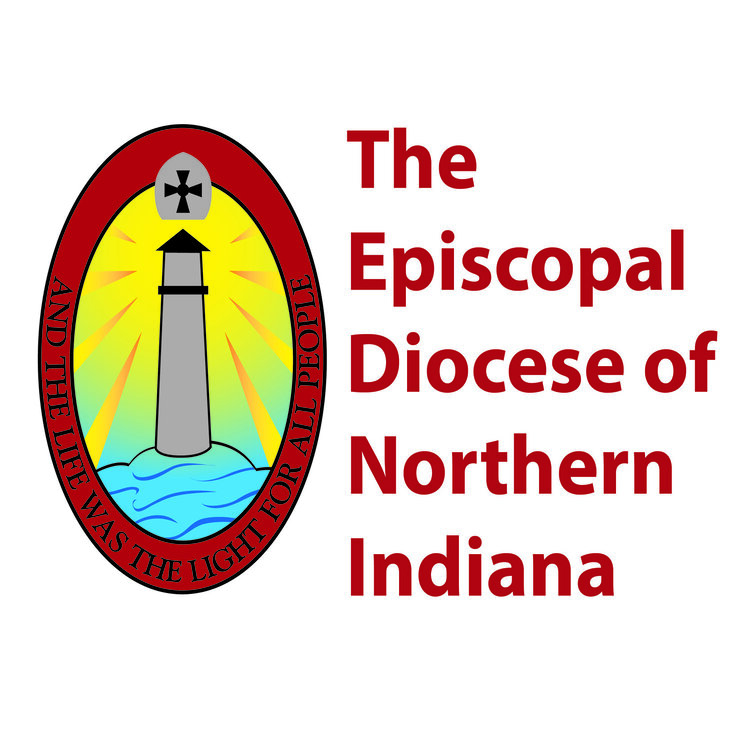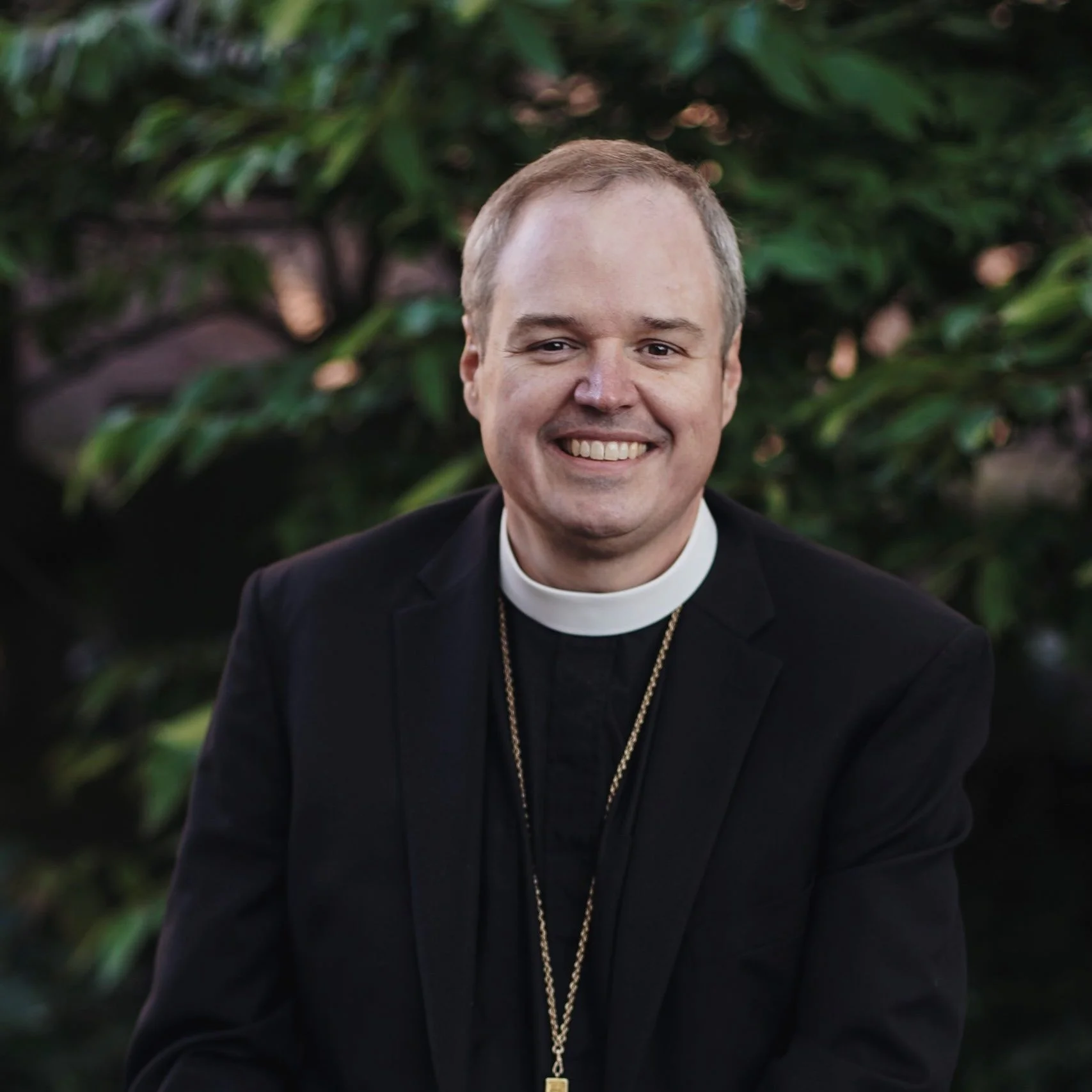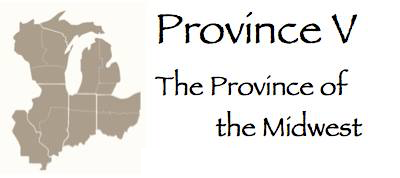Diocesan Governance
The Episcopal Diocese of Northern Indiana is a constituent part of the Domestic and Foreign Missionary Society of the Episcopal Church—usually known more simply as the Episcopal Church. The Episcopal Church is, in turn, a member of the Anglican Communion. Each Diocese in the Episcopal Church is governed both by the Constitution and Canons of the Episcopal Church as a whole and by its own Constitution and Canons. Each parish within the Diocese is additionally governed by its own parish by-laws. Likewise, the church gathers to make decisions regarding its common life at each of these three levels, plus the intermediary levels of Province and Deanery. Below you will find a map of these relationships, brief descriptions of the governing body at each level, and links to important resources.
The Anglican Communion consists of an estimated 85 million Christians who are members of 45 different Churches, spread across 165 Countries. Historically, the churches of the Anglican Communion celebrate a communion relationship with the Archbishop of Canterbury. Theologically, they hold in common these four core beliefs:
The Holy Bible, comprising the Old and New Testament, as a basis of our faith;
The Nicene and Apostles’ Creeds as the basic statements of Christian belief;
Recognition of the Sacraments of Baptism and Holy Communion; and
The Historic Episcopate—ours is a Christian tradition with bishops.
Known as the Chicago-Lambeth Quadrilateral, this set of four points is one of the definitions of Anglican faith and ministry. Liturgically, member churches base their style of worship upon the Book of Common Prayer and the Services of Ordination (the Ordinal). Anglicanism classically rests is decisions upon the three pillars of Scripture, Tradition and Reason, seeking ‘a middle way’ among other Christian traditions.
The 105th Archbishop of Canterbury, the Most Rev. and Rt. Hon Justin Welby
From the standpoint of governance, the Anglican Communion provides a means for cooperation, support and exchange among member churches. Four Instruments of Communion give structure to our relationships as churches:
In speaking of these Instruments of Communion, we use language like “first among equals” to indicate relations of love and respect which nevertheless leave the each member church with the authority to carry out ministry in its own context.
The Episcopal Church was established shortly after the American Revolution necessitated a distinction between the Anglican church in England and that in the United States. The Episcopal Church is governed by a bicameral General Convention consisting of a House of Bishops and a House of Deputies. General Convention meets every three years to consider and legislate important matters concerning the common life of the church. During Interim years, the church is governed by an Executive Council.
The General Convention has the authority to amend the Constitution and Canons of the Episcopal Church; adopt the budget for the church for the next three years; authorize liturgical texts and amend the Book of Common Prayer; adopt communions and covenants with other churches; set qualifications for orders of ministry and office-holders; elect officers of the General Convention, the Executive Council, and members of boards; and delegate responsibilities to the interim bodies of the Episcopal Church.
The 28th Presiding Bishop of the Episcopal Church, The Most Rev. Sean Rowe.
The Presiding Bishop of the Episcopal Church is the bishop who has been elected by his or her fellow bishops to preside over the House of Bishops and chair the Executive Council. Our current Presiding Bishop is the Most Rev. Michael B. Curry.
The President of the House of Deputies is the priest or lay person elected by his or her fellow deputies to preside over the House of Deputies and serve as vice-chair of Executive Council. The current President of the House of Deputies is the Julia Ayala Harris.
The Province of the Midwest (Province V) is an association of Episcopal Church dioceses in the Midwest region working to advance the Church’s mission through regular consultation, mutual support, formation and development, and sharing in the governance of the Episcopal Church.
One of nine geographical provinces of the Episcopal Church, Province V covers most of six states (Illinois, Indiana, Michigan, Missouri (eastern), Ohio and Wisconsin, within which are 14 dioceses. These 14 dioceses are home to over 220,000 lay persons and clergy, and 844 congregations.
In 1898, under the direction of Bishop John Hazen White, the Episcopal Diocese of Indiana petitioned General Convention of the Episcopal Church to create a new diocese out of its Northern Convocation. The approval of this petition created the Diocese of Michigan City, which encompasses 31 counties and was reorganized in 1921 as the Diocese of Northern Indiana. The earliest churches in this region were formally established in the late 1830's and early 1840's under the direction of Bishop Jackson Kemper.
As with each diocese in the Episcopal Church, the Episcopal Diocese of Northern Indiana is governed in spiritual matters through the teaching and guidance of its bishop. The Eighth Bishop of Northern Indiana is the Rt. Rev. Douglas E. Sparks. The bishop serves as the Ecclesiastical Authority, both for the diocese as a whole and for each of the 31 faith communities within the diocese.
The 8th Bishop of the Episcopal Diocese of Northern Indiana, The Rt. Rev. Douglas E. Sparks
Meeting annually in Diocesan Convention and ordered through its Diocesan Constitution and Canons, the Episcopal Diocese of Northern Indiana organizes itself in day to day matters through a number of different governing committees. Members for legislative committees—such as the Standing Committee and the Diocesan Council—are elected, while advisory committees are appointed by the bishop.
The Three Deaneries—Eastern, Central and Western
Finally, the diocese has been sub-divided into the Eastern, Central and Western Deaneries. Led by two co-deans apiece, each deanery is responsible for fostering collegiality among lay and clergy leaders, for geographically distributing the leadership of diocesan committees and for providing mutual support among nearby congregations. At its pre-convention meeting, each Deanery alternates between electing one clergy or one lay representative to Diocesan Council.
The Current Deans are:
Eastern Deanery
The Rev. Tom Adamson (2026)
Central Deanery
The Rev. Jennifer Fulton (2027)
Western Deanery
The Rev. Cathy Carpenter (2028)
For the Unity of the Church
O God the Father of our Lord Jesus Christ, our only Savior, the Prince of Peace: Give us grace seriously to lay to heart the great dangers we are in by our unhappy divisions; take away all hatred and prejudice, and whatever else may hinder us from godly union and concord; that, as there is but one Body and one Spirit, one hope of our calling, one Lord, one Faith, one Baptism, one God and Father of us all, so we may be all of one heart and of one soul, united in one holy bond of truth and peace, of faith and charity, and may with one mind and one mouth glorify thee; through Jesus Christ our Lord. Amen.









